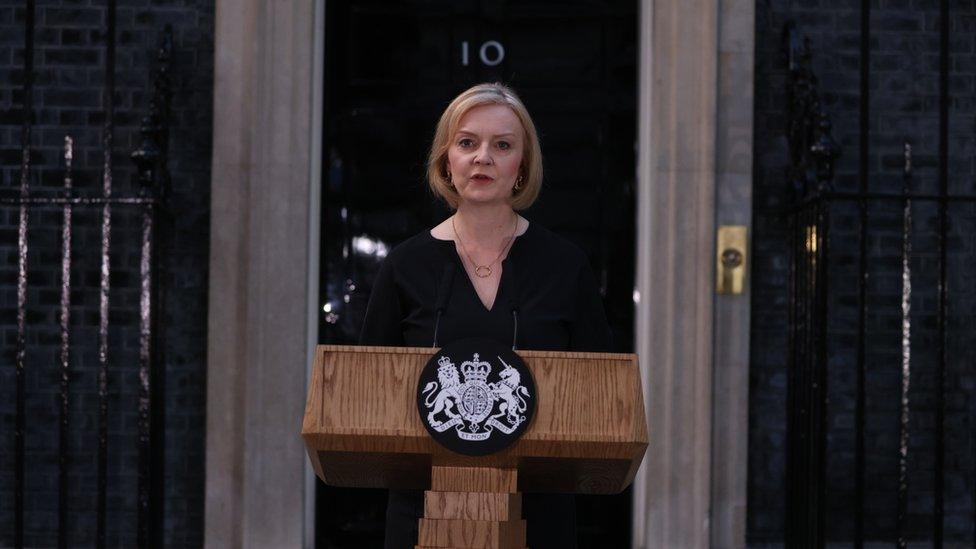Queen Elizabeth II: Former prime ministers reflect on monarch's reign
- Published
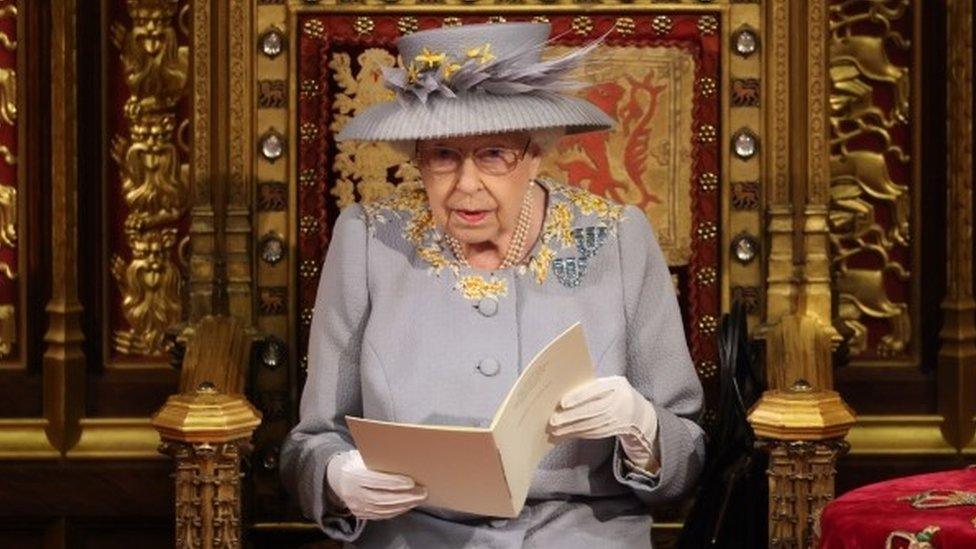
Former UK prime ministers who served during the reign of Queen Elizabeth II have been reflecting on the extraordinary life of the late British monarch.
There have been 15 prime ministers leading the UK government since the Queen ascended to the throne in 1952.
She had regular contact and weekly meetings with all of her prime ministers, who kept her informed about matters of national importance.
Of those who served during the Queen's 70-year reign, six have been sharing their recollections of their relationship with UK's longest-serving monarch.
Sir John Major, prime minister from 1990 to 1997
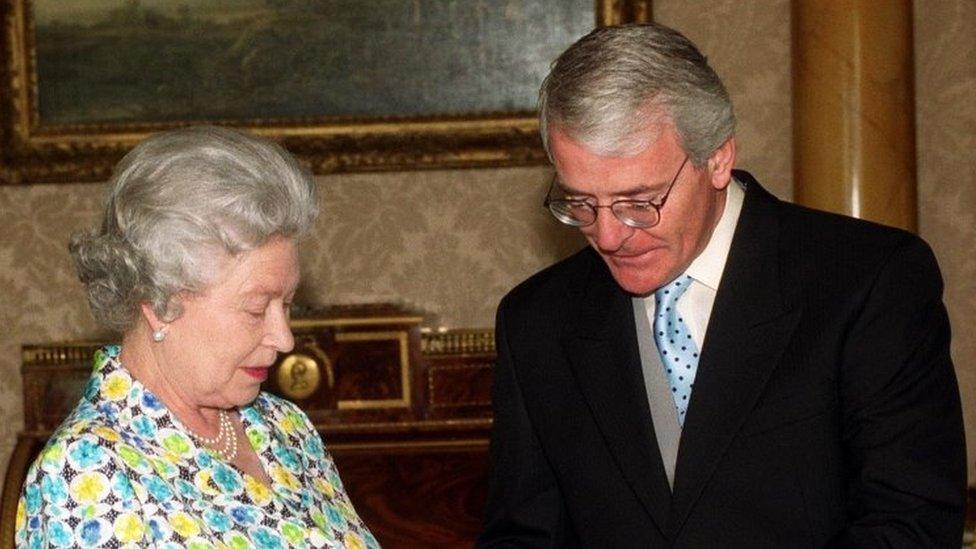
Sir John told the BBC he had "so many recollections" of their meetings that were "different from what people might imagine".
"There was a great deal of amusement in them, there was a great deal of humour in them, there was a great deal of gossip in them.
"I think people would have been extraordinarily surprised if they realised the depth of information the Queen had about the lives of people in every conceivable part of the United Kingdom. She was always extraordinarily well briefed.
"And on foreign affairs, she would always say if there was a difficulty of a foreign leader, 'Well I met him many years ago' or 'I knew his father'. There was always a wise word to be had. And those meetings with the Queen were always the better part of a prime minister's week."
Sir Tony Blair, prime minister from 1997 to 2007
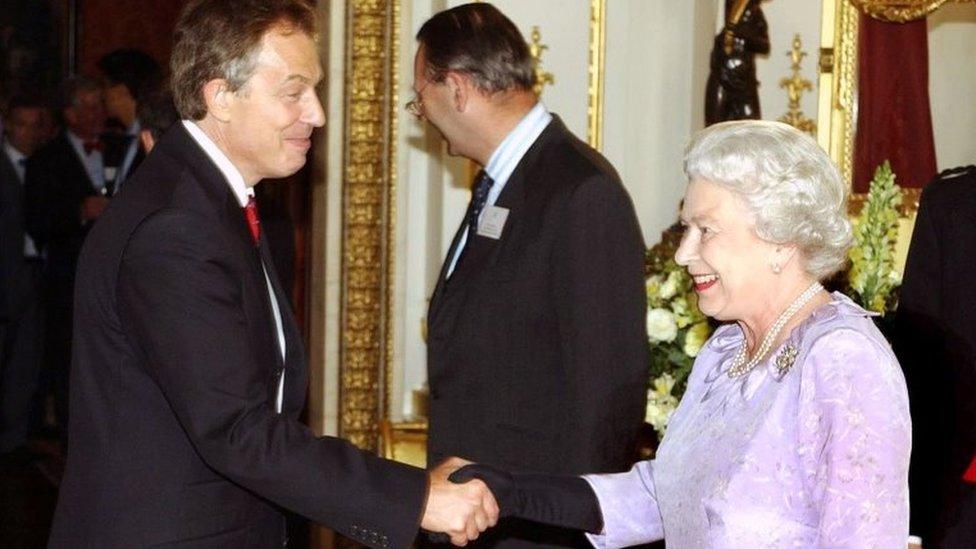
Sir Tony said the Queen "personified everything which makes us proud to be British" and recalled memories of her from his youth.
"The Queen has been part of my life for all of my life. From the moment I waved my little flag as I watched her, as a child, be driven through the streets of Durham, to the honour of being her prime minister, to my last meeting with her and then lunching with her at Windsor Castle for the Garter ceremony just a few months ago, she has been an enduring presence of strength and stability.
"At that lunch, we sat next to each other and she was on sparkling form as we talked - warm, gracious, humorous and spirited.
"She was not only respected but loved. Respected because of the qualities of duty, decency, integrity and fidelity which she embodied. And loved because of the love and affection she bestowed on us."
Gordon Brown, prime minister from 2007 to 2010
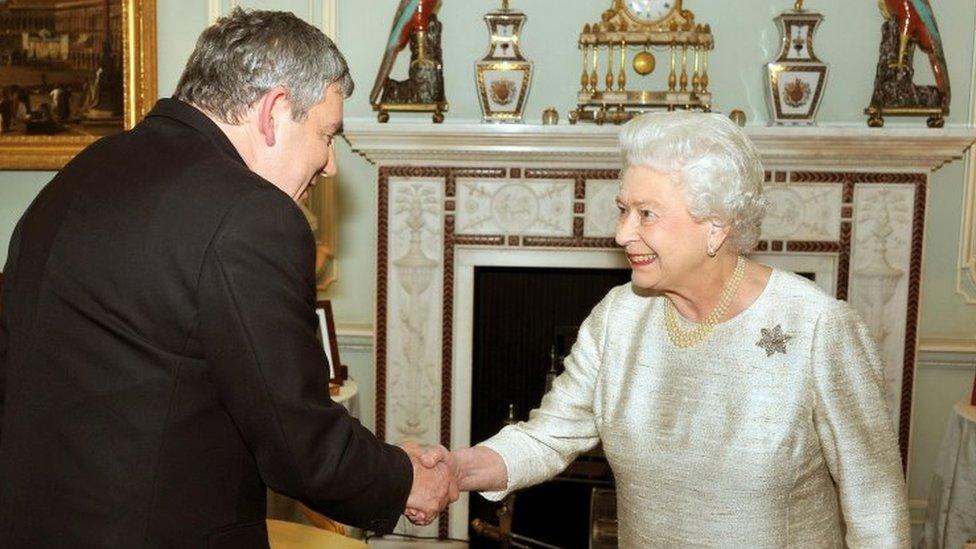
Mr Brown told the BBC the Queen was admired for her sense of public duty among other things.
"She was conscientious, she was considerate, she was caring, she had a great sense of humour. She was endlessly patient even when talking about the details of a boring budget. But most of all what shone through was her complete and utter dedication to the country and the constitution.
"It's the whole world that is in mourning because she was a compassionate, dedicated, wonderful public servant and nobody will ever forget the contribution she's made.
"She was a peacemaker, she brought people together, she listened to people. She never told you what her view was on any partisan issue. She wanted people to come together."
David Cameron, prime minister from 2010 to 2016
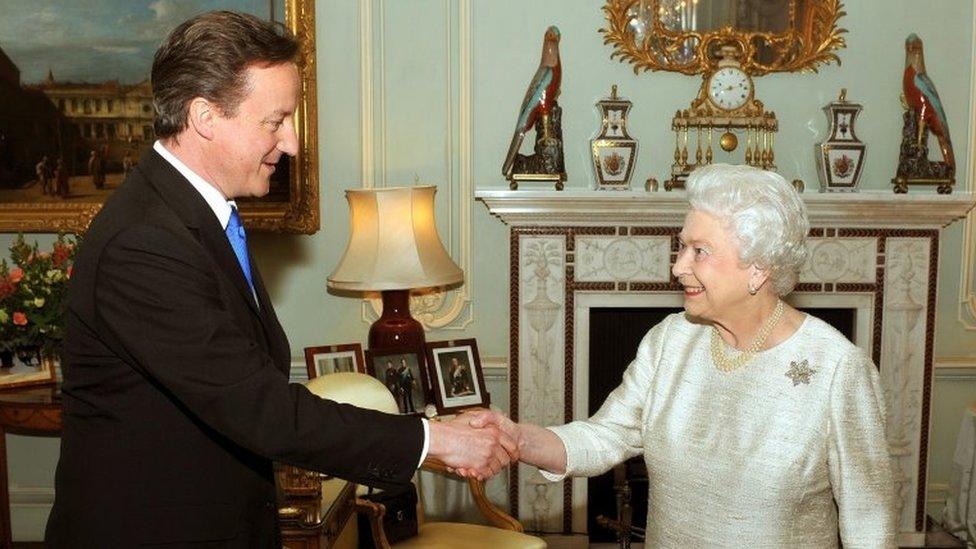
In a statement, Mr Cameron said the Queen had been "the constant in all our lives over the past 70 years" and highlighted her diplomatic savvy.
"As our longest serving monarch, her remarkable reign has lasted, for most people, our entire lives - we know nothing else. Throughout those seven decades, she has been a rock of strength for our nation and the Commonwealth.
"There can simply be no finer example of dignified public duty and unstinting service and we all owe our sincere gratitude for her continued devotion, living every day by the pledge she made on her 21st birthday. Her dedication to our country has been incomparable and, as such, she leaves an enduring legacy.
"It was, each week, a privilege to have the almost unique ability to sit down, in private, with Queen Elizabeth and to be able to call on her sage advice and wise counsel. I was fortunate to have been able to call on the knowledge of the world's greatest public servant and, indeed, the world's most experienced diplomat."
Theresa May, prime minister from 2016 to 2019
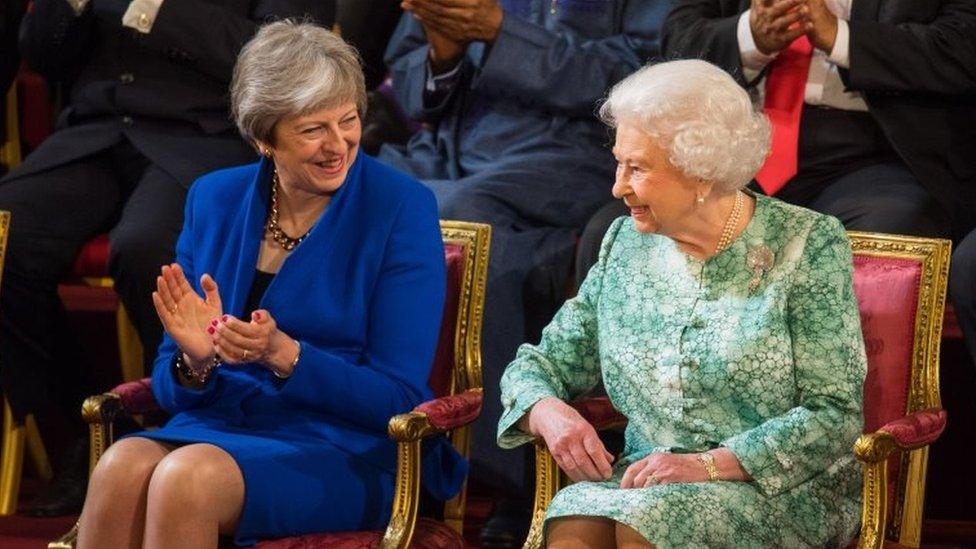
Mrs May told the BBC that meeting the Queen every week was a "huge honour" for her, calling the monarch a "great hostess" who "wanted to put people at their ease".
"Of course we never say what took place and what was said in those audiences. But it was a conversation, a conversation with someone who was immensely knowledgeable and understanding of the issues.
"Many people don't realise how much work the Queen put into her red boxes, to understanding the issues of the day, what was going on in government and around the rest of the world.
"And quite simply, of all the leaders, of all the heads of state I met, Queen Elizabeth II was the most impressive."
Boris Johnson, prime minister from 2019 to 2022
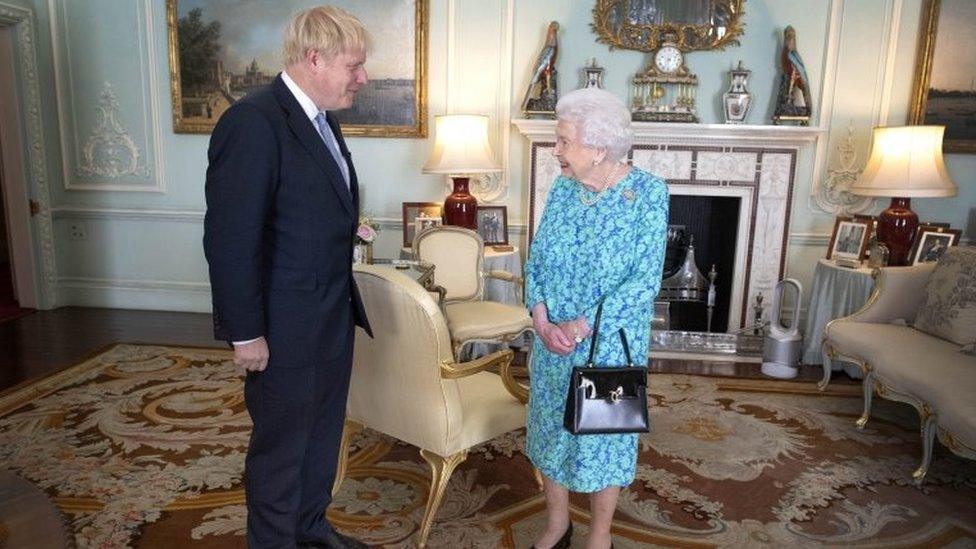
Mr Johnson said in a statement that the Queen "selflessly and calmly" embodied "the continuity and unity of our country".
"We think of her deep wisdom, and historic understanding, and her seemingly inexhaustible but understated sense of duty.
"Relentless though her diary must have felt, she never once let it show, and to tens of thousands of events - great and small - she brought her smile and her warmth and her gentle humour - and for an unrivalled 70 years she spread that magic around her kingdom.
"This is our country's saddest day because she had a unique and simple power to make us happy. That is why we loved her. That is why we grieve for Elizabeth the Great, the longest serving and in many ways the finest monarch in our history."
Related topics
- Published8 September 2022
